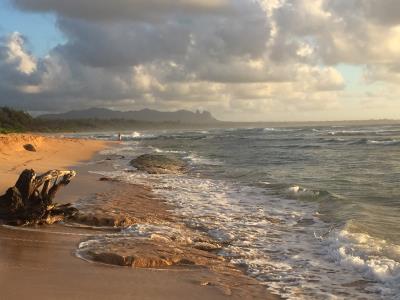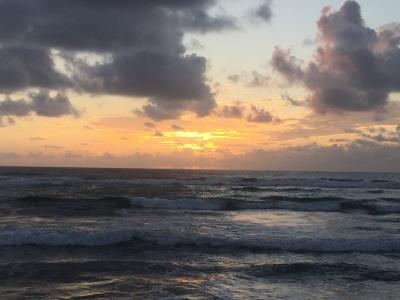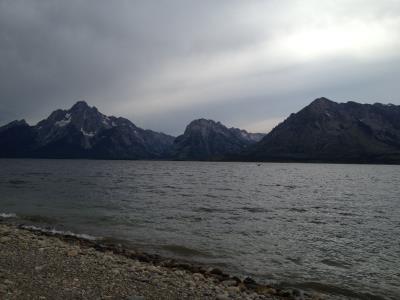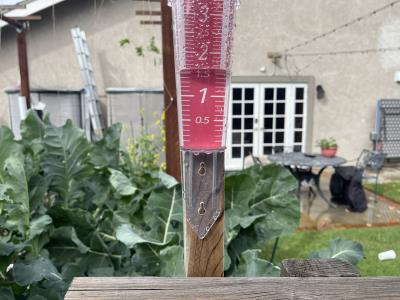




Flathead National Forest – Image Gallery










Flathead National Forest
The Flathead National Forest in Montana is a stunning wilderness area known for its rugged mountains, pristine lakes, and diverse wildlife. - National Forest Official WebsiteDetails
Flathead National Forest
The Flathead National Forest is located in northwestern Montana and covers over 2.4 million acres of land. It is home to a diverse range of ecosystems, including forests, mountains, lakes, and rivers. The forest is named after the Flathead Indian tribe that once inhabited the area.
- Features:
- Glacier National Park: The Flathead National Forest borders Glacier National Park, one of the most iconic national parks in the United States. Visitors can explore the park's pristine wilderness, including glaciers, mountains, and lakes.
- Bob Marshall Wilderness: The forest also includes a portion of the Bob Marshall Wilderness, which is one of the largest wilderness areas in the lower 48 states. This area is known for its rugged terrain, pristine rivers, and diverse wildlife.
- Flathead Lake: The forest is home to Flathead Lake, the largest natural freshwater lake west of the Mississippi River. The lake offers opportunities for boating, fishing, and camping.
- Wildlife: The Flathead National Forest is home to a variety of wildlife, including grizzly bears, elk, moose, and bald eagles. Visitors may also spot mountain goats, bighorn sheep, and wolves.
- Recreation: The forest offers a wide range of recreational activities, including hiking, camping, fishing, hunting, and snowmobiling. There are numerous campgrounds, trails, and scenic drives for visitors to enjoy.
- Ecological Significance:
- Biodiversity: The Flathead National Forest is home to a diverse range of plant and animal species. Its ecosystems support a variety of habitats, including old-growth forests, wetlands, and alpine meadows.
- Water Resources: The forest is a crucial source of clean water for the surrounding communities. Its rivers and lakes provide habitat for fish and other aquatic species, as well as recreational opportunities for visitors.
- Climate Regulation: The forest plays a role in regulating the local climate by absorbing carbon dioxide and releasing oxygen. Its forests help mitigate the effects of climate change by sequestering carbon and reducing greenhouse gas emissions.
- Wildlife Habitat: The diverse ecosystems of the Flathead National Forest provide important habitat for a wide range of wildlife species. It is a critical corridor for migratory species, such as grizzly bears and wolves, and supports healthy populations of native species.
Flathead National Forest
Points of Interest
Most Popular Points of Interest in Flathead National Forest
- Glacier National Park: Located within Flathead National Forest, Glacier National Park is a must-visit destination for outdoor enthusiasts. With over 700 miles of hiking trails, stunning alpine lakes, and diverse wildlife, the park offers endless opportunities for adventure.
- Flathead Lake: As the largest natural freshwater lake west of the Mississippi River, Flathead Lake is a popular spot for water activities such as boating, fishing, and swimming. The surrounding mountains provide a picturesque backdrop for relaxation and outdoor fun.
- Bob Marshall Wilderness: Known as the "Crown Jewel" of the wilderness preservation system, the Bob Marshall Wilderness offers pristine landscapes, rugged terrain, and unparalleled solitude for backpackers and outdoor enthusiasts. The area is home to diverse wildlife, including grizzly bears, elk, and mountain goats.
- Swan Range: The Swan Range is a mountain range located in the northern part of Flathead National Forest, offering scenic hiking trails, stunning alpine meadows, and panoramic views of the surrounding valleys. Popular destinations in the Swan Range include Jewel Basin and Holland Lake.
- Whitefish Mountain Resort: Located near the town of Whitefish, Whitefish Mountain Resort is a popular destination for skiing and snowboarding in the winter, and mountain biking and hiking in the summer. The resort offers breathtaking views of the surrounding mountains and Flathead Valley.
Flathead National Forest – Images

Description: Murray Bay Boat Launch - with expanded parking - part of a capital improvement project to increase safety and upgrade facilities at the Riverside Boat Launch and the Murray Bay Campground on the east side of the Hungry Horse Reservoir.
Image by Forest Service Northern Region from Missoula, MT, USA – Public domain – Wikimedia

Description: New bulletin board at Murray Bay Campground - part of a capital improvement project to increase safety and upgrade facilities at the Riverside Boat Launch and the Murray Bay Campground on the east side of the Hungry Horse Reservoir.
Image by Forest Service Northern Region from Missoula, MT, USA – Public domain – Wikimedia

Description: John Hall. 1963. Flathead National Forest. Fishing.
Image by Forest Service Northern Region from Missoula, MT, USA – Public domain – Wikimedia

Description: A trail bridge over Bear Creek in northern Flathead National Forest
Image by Rmhermen (talk · contribs) – CC BY-SA 3.0 – Wikimedia

Image by Department of the Interior. Bureau of Indian Affairs. 9/17/1947 – Public domain – Wikimedia

Description: The sign for Flathead National Forest in Montana along U.S. Route 2.
Image by Royalbroil – CC BY-SA 4.0 – Wikimedia

Description: Banner version of part of the Flathead National Forest
Image by Forest Service, USDA – Public domain – Wikimedia

Description: Drive along the North Fork of the Flathead River to Polebridge for breathtaking fall color beauty along the river.
Image by Forest Service Northern Region from Missoula, MT, USA – Public domain – Wikimedia

Description: EC Slusher. 1964. Flathead National Forest, Condon Ranger District. Hiking - Wilderness Ranger Cal Tassinari and two other hikers above Glacier Lake in the Mission Mountains Primitive Area.
Image by Forest Service Northern Region from Missoula, MT, USA – Public domain – Wikimedia

Description: Beautiful fall colors along the Tally Lake Road on the Flathead National Forest.
Image by Forest Service Northern Region from Missoula, MT, USA – Public domain – Wikimedia
Search
Quick Links
New Blog SystemNational Parks (NEW)
National Forests (NEW)
National Monuments (NEW)
National Recreation Areas
State Parks
Bureau of Land Management (BLM) Areas
Wilderness Areas (NEW)
By The Numbers (NEW)
- Populations of all Countries (NEW)
Ideas - Stock Tickers
Running USA Debt Total